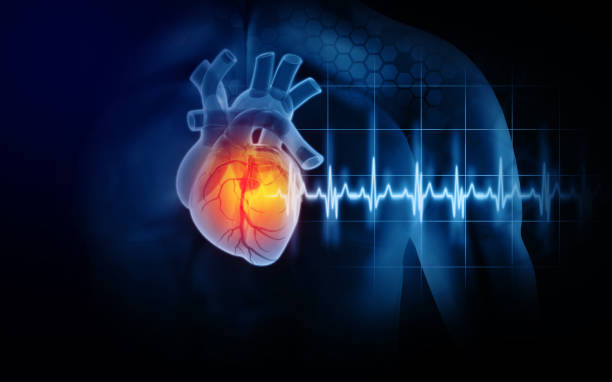
One of the main causes of death around the globe is heart disease. Millions of people suffer from it every year, often without realizing they are at risk until it’s too late. But what if there was a way to predict heart disease before it strikes? Could early detection and intervention help reduce the number of heart disease-related deaths? The answer is yes. With advancements in technology, particularly in the fields of diagnostics and machine learning, heart disease prediction has become more accurate and accessible than ever before.
The growing field of heart disease prediction holds immense promise. Thanks to recent advancements in medical technology, we are now capable of identifying heart disease risk factors early, giving patients a better chance to prevent or manage the condition. Imagine being able to know if you have any underlying silent heart disease symptoms well before experiencing it. Early detection would allow individuals to take proactive steps such as changing their diet, exercising more, or starting medication, all of which can significantly reduce the chances of developing heart disease.
Heart disease prediction is not just about predicting an event like a heart attack, but rather predicting the risk of developing heart disease in the first place. By using tools like genetic testing, endopat tests, cell scans, and even advanced blood tests, doctors are now able to identify whether you are predisposed to conditions like atherosclerosis (plaque buildup in the arteries), hypertension (high blood pressure), or other risk factors associated with heart disease.
How Heart Disease Prediction Works
Heart disease prediction works by analyzing various risk factors, such as genetic predispositions, lifestyle choices, and medical history, through advanced diagnostic tools like genetic testing, blood tests, and imaging technologies. By utilizing heart disease prediction, doctors can provide personalized advice and treatment plans to prevent or manage cardiovascular conditions before they become severe. These tests can provide early warning signs, even before physical symptoms of heart disease begin to show.
Heart disease prediction has advanced through various innovative methods which are, first is genetic testing that can reveal markers indicating a higher risk for conditions like high cholesterol and diabetes, which contribute to heart disease. Another is cell scans help detect damaged cells that may lead to cardiovascular issues, while blood tests can measure biomarkers like C-reactive protein and cholesterol levels, signaling potential risks. Then comes heart disease prediction using machine learning algorithms which analyses vast patient data to identify subtle patterns in heart disease risk. Last but the most advanced and important is the EndoPAT test which measures endothelial function, offering another key insight into cardiovascular health. Together, these methods provide a comprehensive approach to predicting and preventing heart disease.
Heart Disease Prediction and Early Intervention
The main benefit of heart disease prediction is the opportunity to take preventive action. Early diagnosis allows for early intervention, which could include lifestyle changes, medication, or even surgical procedures in some cases. Additionally, heart disease prediction doesn’t just apply to heart disease alone; it can also help prevent other age-related diseases. By identifying risk factors early, individuals can address them before they become life-threatening conditions. You can visit any healthcare provider or cardiologist that provides such tests. One such facility is The anti-aging centre that can help with heart disease prediction with their advanced tests. Furthermore, heart disease prediction can also reduce the overall cost of healthcare by preventing expensive treatments for advanced heart conditions. With the ability of heart disease prediction using machine learning, and other methods, The anti-aging centre offers more targeted, effective treatments that help patients avoid costly and invasive procedures down the line.
Heart Disease Prediction: Preventing Future Health Risks
Heart disease prediction is not just about preventing heart attacks; it’s about proactively managing your overall health to reduce the risk of developing various chronic conditions. By using advanced predictive methods, people can take early action and reduce their chances of experiencing serious heart problems. Early diagnosis also gives you the opportunity to adjust your lifestyle and adopt healthier habits, which can have a significant impact on your quality of life. For example, if a prediction test reveals that you are at a higher risk for heart disease, you can start treatment early not just treatment but you’ll build self care habits too like making lifestyle changes such as eating a heart-healthy diet, exercising regularly, reducing stress, and even taking medications that lower cholesterol or blood pressure. While a personalized approach is far more effective than waiting for full-blown symptoms to appear, many find self-care challenging. However, you can enroll in TAC’s longevity program, which offers a tailored treatment plan based on comprehensive tests. This plan includes dietary recommendations, lifestyle changes, health supplements, and expert care from India’s leading doctors.
Conclusion
So, heart disease prediction is not just a theoretical concept; it is a tangible reality made possible by advancements in medical technology. With the use of genetic testing, cell scans, blood tests, and machine learning algorithms, we can now identify heart disease symptoms more quickly even before you feel them. This early detection opens the door for more effective treatments and lifestyle changes that can help prevent heart disease from taking hold. If you’re looking to take control of your heart health, consider visiting a clinic like the anti-aging centre, where you can undergo heart disease prediction tests and receive personalized treatment plans. With the right tools and expertise, heart disease can be predicted and managed, offering you a healthier and longer life.
